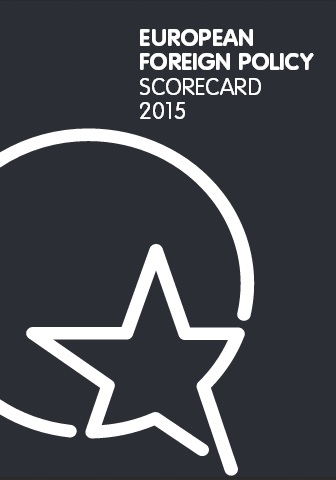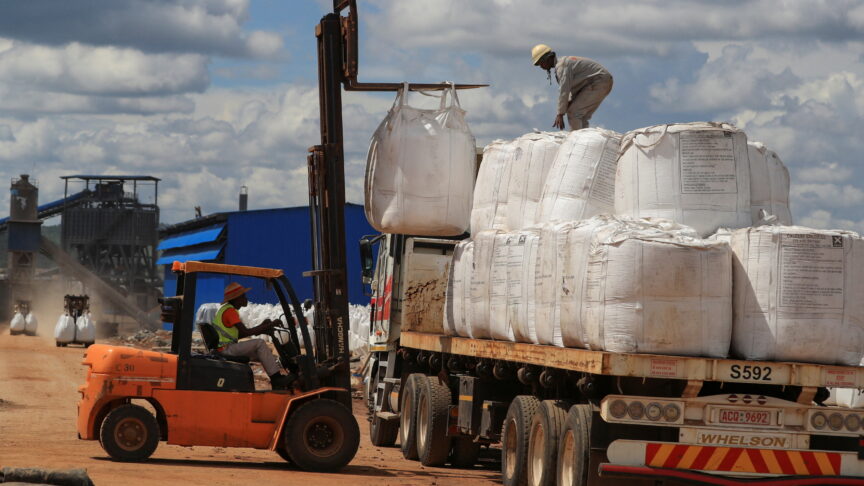European Foreign Policy Scorecard 2015
The fifth edition of ECFR’s Foreign Policy Scorecard examines EU’s response to a year of crisis
The fifth annual edition of ECFR’s groundbreaking ‘European Foreign Policy Scorecard’ examines the EU’s response to a year in which crisis came to Europe’s borders. It assesses 65 individual aspects of European foreign policy in six key areas: relations with Russia, Wider Europe, Middle East/North Africa, China and Europe's performance in multilateral institutions and in crisis management. The authors also award grades for overall performance and label individual countries “Leaders” or “Slackers” depending on whether they lead or hinder Europe’s ability to achieve its interests on particular goals.
This year, the main findings were:
- The end of the affair with Russia.The illusion of partnership and cooperation with Russia came to an end, and power politics was back. The events of 2014 showed that the sceptics about Russia were right, and that the meaningless compromise phrases on which EU policy had been based over the last decade were just that: meaningless.
- European foreign policy in 2014. Despite traditional divisions in relations with Russia, the EU pulled together around a strong sanctions policy, so higher marks were given than in previous years, particularly for unity. But everything else was secondary to dealing with the Russian threat in 2014, so, while improved unity brought up scores here and on the Eastern Partnership countries (especially Ukraine), the EU was less focussed in other regions such as MENA and the Western Balkans, and saw lower scores for outcomes.
- Germany is prominent, France moves away from EU centre stage, and the UK is incurably European. Germany dominated foreign policy decision making more than any other member state this year, across all regions. France’s trailblazer style continued in areas of strategic interest, such as CAR and tackling ISIS’ advance, but it did not show the leadership across the board, including on aid, as the UK and Sweden did. Counterintuitively, while talking big on Brexit this year, the UK was engaged as a leader at least once in every chapter except Asia.
Summary of the main grades
Russia : B- It took some months after Russia’s annexation of Crimea, but in the second half of the year, the EU pulled together around a strong policy of sectoral sanctions against Russia. Combined with falling oil prices, this has diminished Russia’s economic outlook, but Europeans have yet to develop a post-sanctions strategy.
United States: B The transatlantic relationship was dominated by the Ukraine crisis, and, especially after the downing of MH17, worked smoothly. EU-US cooperation on the Middle East was less well managed, and follow-up to both the high points (ie TTIP) and the low points (ie the Snowden debacle) of 2013 moved more slowly this year.
Wider Europe: B- The EU signed Association agreements with Georgia, Moldova and Ukraine, but overall, efforts to protect the European choice in the Eastern neighbourhood were insufficient. Faced with backsliding in the Western Balkans, enlargement was frozen, and member states were divided on how to engage with Turkey’s anti-democratic tendencies or regional role.
Middle East and North Africa: C With the important exception of democracy bedding down in Tunisia, instability spread further through the MENA region, with the advance of ISIS, and conflict in Libya, Syria, Yemen, and during the summer, Gaza. Europe struggled to find a strategic response, as GCC states, Iran and Turkey called the shots.
Asia and China: B- EU states reached out other Asian powers, but relations with China, centred around investment, remained their focus in Asia in 2014. China continued to assert itself in its maritime neighbourhood, but EU states limited their response to reiterating the importance of international law, gaining little in return for this neutrality.
Multilateral Issues and Crisis Management: B- The refugee crisis emanating from Syria, the immigration crisis in the Mediterranean, Ebola in West Africa, and conflicts in Central Africa, Mali and against ISIS, showed the limits of austerity-time EUintervention. The Ukraine crisis highlighted flaws in multilateral diplomacy, showing that the rest will not follow the West.
The European Council on Foreign Relations does not take collective positions. ECFR publications only represent the views of their individual authors.



